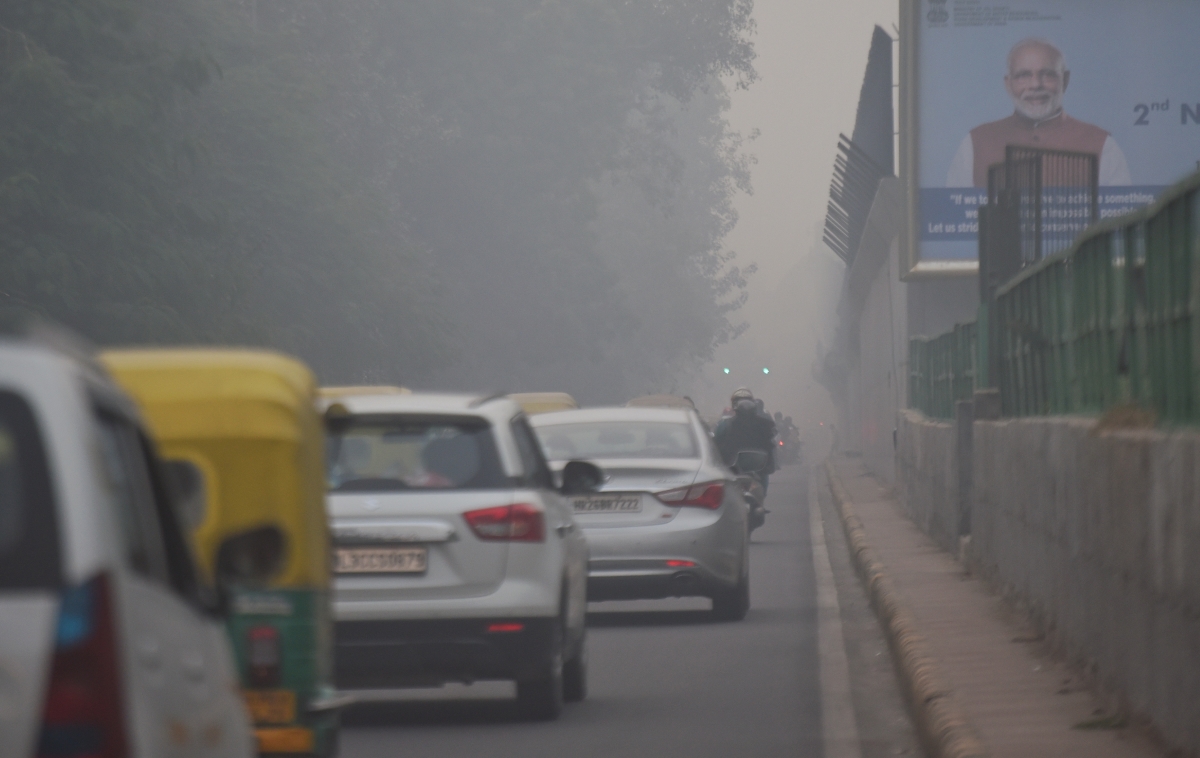With Delhi battling a resurgence of annual spike in air pollution which can further aggravate the distress cause by the pandemic, the Capital’s struggle to contain it is on the radar and UK may have shown the way forward
During the nationwide lockdown, lack of vehicular movement along with reduced human activity, paved the way for pristine skylines and clean air. However, as the lockdowns receded and winters came knocking, the air quality in Delhi, which is bad all the year round, became toxic again.
And as private vehicles powered by petrol and diesel keep to the roads, the quest for clean air in Delhi will require a thorough assessment of the situation. However, the example being set by the government in the UK could be the possible solution.
As part of a 10-point plan, Borris Johnson, Prime Minister of the UK announced that the country will ban the sale of petrol and diesel powered vehicles by 2030. However, sale of hybrid vehicles, that alternate between traditional and green fuel sources, will be allowed till 2035. The move will be a part of a 10-point ‘green industrial revolution’ aimed at combating climate change while at the time creating 2,50,000 jobs.
The announcement from the government in the UK, is part of the country’s effort to shift its dependence on high emission fuels for preservation of the environment. Earlier the ban on sale of petrol and diesel vehicles was to be implemented from 2040. However, as per reports, after extensive consultation between the government and car manufacturers and sellers, the plan was pushed forward.

Banning the sale of petrol and diesel vehicles though, is only part of the plan to ensure cleaner air. While the government bans sale of polluting vehicles, it has announced funding to the tune of £1.3 billion for development of charging infrastructure for electric vehicles. At the same time £582 million will be spent on grants for lower costs of e-vehicles to encourage greater adoption by the public. Another £500 million will be spent over a span of four years on ‘the development and mass-scale production of electric vehicle batteries.
And while this is seen as the start of an effort to reduce dependence on fossil fuels that are a major contributor to air pollution, there is both criticism and praise for the announced measures. Indian cities too, at least in part can implement similar measures to control the rapid deterioration of their air quality.
If nothing else, says Akshay Kashyap, founder and Managing Director of Greenfuel Energy Solutions, the perceptible drop in air pollution levels during the lockdown has at least created awareness about the ways in which better fuel sources for mobility can ensure cleaner air. Kashyap, who has been in the clean fuel market since 2006, says that economic viability along with awareness can become the driving factors behind greater adoption of cost-effective and cleaner vehicles powered by CNG and electricity, especially in the two-wheeler category in India.
That is what the administration in the UK seems to be working towards.
He says that to ensure greater adoption of green fuels the government in the interim can introduce greater tax reductions and provide better incentives to ease the way for consumers to switch over to greener fuels.
However, the outright banning of diesel and petrol vehicles may take time as Indian cities lack the requisite infrastructure to support a switch to all-electric vehicles. “Mandating the use of all-electric two-wheeler vehicles for e-commerce and delivery services in the coming 3-6 months by up to 30-40% is a great idea. Another area which can be worked upon is personal transport.”
And as the pandemic ranges on, with social distancing norms being enforced, people opting away from public transport will want to invest in personal modes of transport. At the moment such consumers will automatically turn to petrol and diesel-powered vehicles, which is a scary thought. And even though Bharat Stage VI emissions norms do enforce greater restrictions on vehicular emissions, they may not be enough as it will take some time for older vehicles to fall into disuse. However, this can be used as an opportunity.

Kashyap feels that “The government can follow the carrot and stick policy. Wherein, on one hand, it incentivises the use of electric and CNG vehicles by reducing the current GST on them from 12-5% to nil, while at the same time mandating their use in fleets for deliveries”.
Mandating the use of greener fuels by the government, according to him, will speed up the process of their adoption by organisations and individuals. E-commerce platforms are already looking at switching to electric vehicles — if and when it is mandated, it will rev up the rate at which the transition takes place.
Such a move can even drive the wheel of change, which will also speed up the rate of development of supporting infrastructure for green fuel sources. Kashyap says, “Infrastructure creation takes time and cost. When businesses evaluate the setting up of infrastructure, they do so based on return on investment, so it’s a question of what comes first — the infrastructure or the growth in demand for fuels like CNG”.
For electric vehicles, the option to charge vehicles at home is also available which makes their adoption even easier. Their use will result in increase in the supporting infrastructure like charging ports in parking areas. Similarly when the use of electric and CNG vehicles is mandated and incentivised, the infrastructure to ensure the supply of these vehicles will also come up. “Even if supply lines for production can be improved in a period of six months, manufacturers need the incentives to do so, which can only come when demand increases. While awareness for the adoption of e-vehicles is there, there is no demand subsequently no substantial increase in the supporting infrastructure.” And as was seen in 2019-20, despite greater incentives and more options being available to consumers, the sales of four-wheeler e-vehicles was not impressive. In such a scenario, outright banning of diesel and petrol vehicles for the private sector may not be such a good move. However, it can be a viable option in the future.
However, as the debate around the use of e-vehicles and their use intensifies, there are other cleaner alternatives for use in vehicles —
namely, liquid hydrogen and bio-fuel. While both are in their developmental phase, manufacturers have stressed that they can be alternate fuel sources. Viability, though, is still in question. Particularly in the case of bio-fuel, whose production comes at the expense of change in land use for the production of cash crops rather than food grains.
According to experts, for a country like India, the better alternative is CNG as it can be produced from the decomposition of waste. This can also provide a solution for the huge landfills and biodegradable waste in the country which have become a big source of problem for larger cities.
Similarly, a shift in the fuel source for power plants and the use of renewable energy sources in the production of electricity can also bring down the carbon footprints of e-vehicles. So, till the time alternate fuel sources like hydrogen and bio-fuel become viable, stress on the use of CNG, LPG and e-vehicles should be the country’s focus for fuel security as well as for ensuring cleaner air.
For this, the best way forward would be the use of available green fuel sources and the move towards their greater adoption and the next few years will be crucial in deciding in which direction India is headed. And if not its entirety, India too at least in part can follow in the footsteps of the UK to bring down its year-round air pollution woes. And while this may not be the ideal situation for petrolheads, it could be a big step towards cleaner air.
(Cover Image: FOR EASY BREATHING: Banning sales of petrol and diesel vehicles, could be a drastic, but necessary step needed to combat worsening AQI in Indian metros / Credit: Getty Images)





